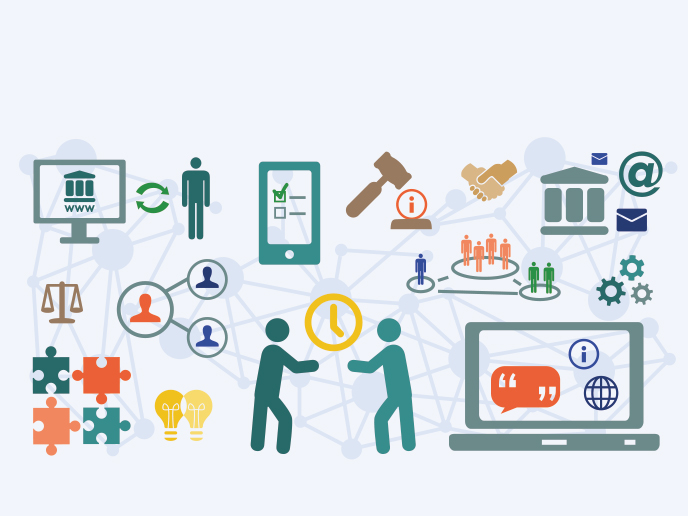Digital Government: Co-creating innovative public services for citizens and businesses
As the EU’s eGovernment Action Plan 2016-2020(opens in new window) states: “Digital public services reduce administrative burdens on businesses and citizens by making their interactions with public administrations faster and efficient, more convenient and transparent, and less costly.” The EU eGovernment Action Plan 2016-2020 and the 2017 Tallinn Ministerial Declaration on eGovernment(opens in new window) provide a vision for the development of modern public services, namely services that are: digital, cross-border and interoperable by default; inclusive and accessible; open and transparent; trustworthy and secure; and require users to supply information only once. However, existing challenges for achieving this vision include the required change in approach when it comes to replacing paper-based processes by online interactions, better understanding the pros and cons of different digitalisation strategies, as well as the benefits of engaging citizens in collaborative public service design and delivery. Another important consideration is the sheer technical complexity involved in guaranteeing interoperability across borders, sectors and services. On the users’ side, following the Tallinn Declaration, citizens and businesses are increasingly expecting better, more personalised public service delivery, burden reduction, transparency, participation and citizen engagement in the creation of public services. Citizens generally prefer not to have to supply the same information multiple times, so data needs to be shared and reused among public administrations, in full compliance with data protection rules. This is known as the ‘once-only principle’ and is one of the underlying principles of the eGovernment Action Plan. The benefits of efficient, user-friendly digital public services extend beyond the convenience of, for example, paying your taxes online: there is also the opportunity to create real value by enhancing the efficiency of the EU Single Market and giving citizens more freedom and control over how they engage with public authorities. The EU’s Digital Single Market (DSM)(opens in new window) Strategy for Europe incorporates the eGovernment Action Plan, as the efficient functioning of the Single Market depends on removing digital barriers.
Turning a vision and an ‘action plan’ into action
Delivering innovative eGovernment solutions and applying the principles put forward in the eGovernment Action Plan and Tallinn Declaration are some of the goals of the projects supported by the EU. By funding research, whether it is putting in place technical solutions or encouraging citizen participation, the EU is bringing down the barriers that currently prevent us from exploiting digital technologies to their full potential. Smart urbanisation and the sensors involved, the devices in our pockets, connectivity and cloud services are all powering open, innovative governance that enables people to access services when they need them and how they need them. But the notion of the public as ‘clients’ is also shifting. By harnessing digital tools to their full capacity, the public can become a true partner and, in cooperation with public administrations, can co-create the services that suit them. In this context, European public administrations are interesting showcases for experimenting with new technologies, taking into account privacy, security and ethical concerns. This pack outlines some of the research and innovation actions helping public administrations across Europe to maximise the full potential of Digital Government.
New tools, new approaches
All projects featured in this updated Results Pack are working to bring eGovernment closer to the citizen. The Pack comprises the original 10 articles published in 2019 and five entirely new project articles for 2020, with three of the original 10 also receiving revisions to include exciting new developments since the original publication. The smarticipate project addresses the challenge of getting citizens involved in decision-making while WeGovNow and ENLARGE promote co-production and co-delivery of public services at local level. To improve the uptake of digital services, CITADEL focusses on the needs of public administrators to get insight into why citizens are not using available digital public services. Meanwhile, TOOP, one of our comprehensively updated articles, is piloting solutions to help administrators implement the ‘once-only principle’ by developing a federated technical architecture to connect national registries at the EU level, while SCOOP4C is aiming at simplifying administrative procedures for citizens. Finally, RECAP helps both administrators and farmers alike adhere to the technical demands of the Common Agricultural Policy, saving both time and money, while OpenGovIntelligence pilots the use of Linked Open Statistical Data and the active participation of society and businesses in data sharing.



